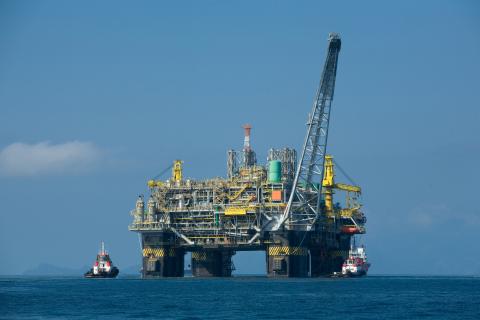Oil Companies Unload On Biden After His Thinly-Veiled Threats

THOMAS CATENACCI
THE DAILY CALLER
Biden penned a letter to seven major oil companies Tuesday insisting they increase oil refining operations to counter declining fuel supplies and inventories nationwide. The American Petroleum Institute (API) and American Fuel & Petrochemical Manufacturers (AFPM) sent a letter to the White House Wednesday evening, saying energy companies are refining at an increasingly high rate and government policies have injected uncertainty into the industry, in a response sent to the White House on Wednesday evening.
"Refiners do not make multi-billion-dollar investments based on short-term returns," the two groups wrote in the joint letter to Biden. "They look at long-term supply and demand fundamentals and make investments as appropriate. To that end, following on your campaign promise to 'end fossil fuel,' consider just some of the policy and investment signals being sent by various federal agencies and allied state governments to the market about our refining industry."
"The timing and reasons for shutdowns of several refineries, including the Philadelphia Energy Solutions and Shell Convent refineries, were primarily due to lack of buyers willing to continue operating the facilities as petroleum refineries given growing rhetoric about the long-term viability of the industry," the letter continued.
On Wednesday, several of the companies Biden addressed in his warning letter responded in force, echoing the industry groups' response. They noted their refinery utilization rates are high and that the president's policies are holding them back.
"Specific to refining capacity in the U.S., we've been investing through the downturn to increase refining capacity to process U.S. light crude by about 250,000 barrels per day – the equivalent of adding a new medium-sized refinery," ExxonMobil said in a statement shared with The Daily Caller News Foundation. "We kept investing even during the pandemic, when we lost more than $20 billion and had to borrow more than $30 billion to maintain investment to increase capacity to be ready for post-pandemic demand."




























Comments
I swear I instantly succumb…
Comment